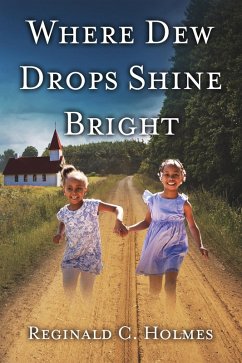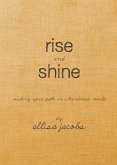Mr. Holmes begins each chapter with a certain year. In order to refresh our memories, he provides a brief list of the current events, including the number of those lynched in Mississippi during that year. It was horrific and dangerous to be African American, poor and under educated, living in an environment ruled by legal racial segregation. Yet still, many African American families not only survived, but thrived to raise strong willed, ambitious, self-confident children with sound Christian values. The author's family is but one.
Mr. Holmes skillfully tells the story of strong women who live amid danger, poverty, and domestic abuse. The story opens with two women and a man making a deal that will forever impact each of them. The choices these three make are in turn heart-wrenching and understandable. As the book progresses, Reginald Holmes' stories of romance, family relationships, heartbreak and survival in rural Mississippi becomes an interwoven tale of the experiences and triumphs each generation passes down for the next to build upon. This is a powerful tale of family and struggle; and picking up the pieces.
Reginald Holmes puts you right smack in the middle of his family, and black history in general, with the characters southern dialect and the descriptive setting of every scene. Moreover, he adeptly interweaves within the dialogue common activities of the era. For instance, slaughtering a hog, home remedies like 'pine needle' and 'cow chip' teas, applying a muscle ointment made from bacon fat and a mother teaching her young daughters how to clean chitlins. Mr. Holmes relays a story of faith, of triumph, of making it, and most importantly, of family. The Hollinshed family, both factual and dramatized, are an amazing lot who fought many hardships to end up with a fantastic tale of family and determination to do better, to be better, and to make better for future generations. The story is easy to follow, believable and complimented by crisp and engaging writing.
Reading actual first-person stories, albeit fictionalized, of life during the era of segregation and discrimination will be inspiring to many, especially after learning how far the family comes through with grit, determination, and respect for a formal education. Readers will also appreciate the collection of old family photographs that really bring this narrative to life.
Dieser Download kann aus rechtlichen Gründen nur mit Rechnungsadresse in A, B, BG, CY, CZ, D, DK, EW, E, FIN, F, GR, HR, H, IRL, I, LT, L, LR, M, NL, PL, P, R, S, SLO, SK ausgeliefert werden.









